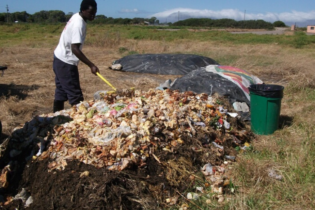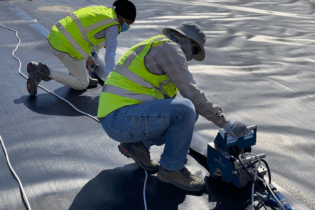At least a half-degree reduction in temperature can be achieved if there is immediate action to reduce air pollution from coal-fired power plants, gas fracking, diesel trucks and biomass burning, according to recent studies. What is needed is regulation, money and the will to do it over the next 20 years. This would bring dramatic reductions in emissions of short-lived planet-heating pollutants like methane, black carbon or soot and smog. The studies by the UN Environmental Programme and the World Meteorological Organisation also show that the reduction of pollutants, many of them dangerous, can save millions of lines.
According to the Clean Air Task Force, an NGO working to reduce air pollution, this is the one thing that can slow the rapid meltdown of the Arctic seas ice. Last week, the annual summer melt of sea ice shocked scientists by falling 18% below the previous record low. Summer ice this year is half what it was 30 years ago and is disrupting weather patterns in the northern hemisphere. The vast Greenland ice sheet also experienced a record melt this year, nearly doubling the previous record melt. Every summer, the surface of Greenland melts but this year’s melt was excessively high with parts of Greenland continuing to melt for 40 to 50 days longer than normal. This process is being driven by warmer air temperatures, a drop in snowfall and the fact that much of the ice is no longer white but covered with black soot particles that are caused by burning diesel and biomass thousands of kilometres away, in Europe, Asia and North America. Snow and ice reflect much of the sun’s heat energy but due the combination of the black soot and melt water ponds, more of that heat is absorbed by the ice, leading to increased melting. A new international group, the Climate and Clean Air Coalition, was created in February this year to spearhead efforts in all countries to take action on these air pollutants. A package of 16 measures to reduce emissions of black carbon and methane have been identified and last week, the Coalition met in Ghana to work together with African nations to identify ways to reduce emissions of short-lived climate and air pollutants from the African continent. Reducing emissions of methane, black carbon and tropospheric ozone would have “substantial and immediate health, crop yield and other environmental benefits for Africa” in addition to reducing warming, the Coalition reported.High-efficiency stoves are a simple, low-cost technology to reduce emissions of soot. In the transport sector, cleaner-burning diesel engines, black carbon filters and low-sulphur fuels can be used. Preventing oil and gas flaring in the fossil fuel sector as well as the reduction of methane emissions are other needed actions.
Much of this has been known for several years. Developed nations have taken action on air pollution, particularly by shifting to cleaner-burning diesel engines. However, there is still much to be done. Europe’s air pollution remains dangerously high and despite regulations, tiny particles of soot are reducing European life expectancy by as much as two years. Last year, after decades of inaction, the United States finally enacted new regulations to reduce emissions and improve efficiency of motor vehicles. The recent boom in hydraulic fracturing, or fracking, is taking energy production in the opposite direction according to Earthjustice, an NGO in the United States. Methane has 105 times the warming potential of carbon dioxide over a 20-year time frame, after which it rapidly loses its warming potential. If large amounts of methane are released as seems likely with hundreds of thousands of new wells forecast in the next two decades, global temperatures could rise. Source: ipsnews.net





